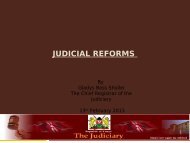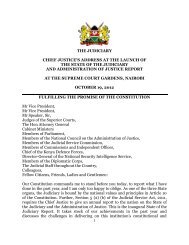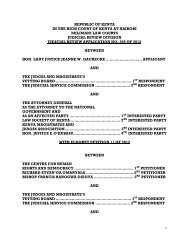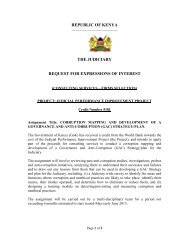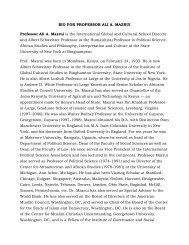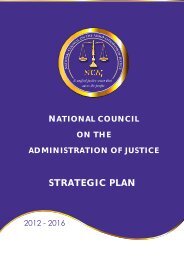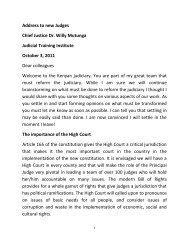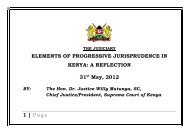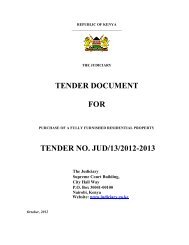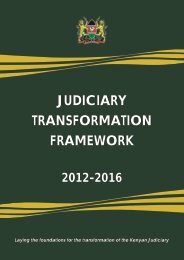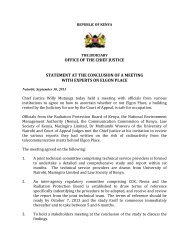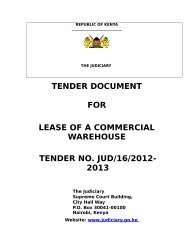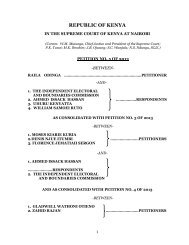REPUBLIC OF KENYA - The Judiciary
REPUBLIC OF KENYA - The Judiciary
REPUBLIC OF KENYA - The Judiciary
You also want an ePaper? Increase the reach of your titles
YUMPU automatically turns print PDFs into web optimized ePapers that Google loves.
ought to have been anchored under Article 163(4) of the<br />
Constitution, or under Section 23 of the Sixth<br />
Schedule on ‘Transitional Provisions’.”<br />
[70] Inquiry about jurisdiction is always a preliminary issue that the<br />
Court is to entertain at the barest of indications. And in the Macharia<br />
Case all the indications were there, leading the Court to advert to the<br />
link between Section 14 of the Supreme Court Act, 2011 and the<br />
question of jurisdiction. A decision arising in such circumstances, we<br />
believe, is not to be regarded as obiter dictum, as learned counsel, Mr.<br />
Nowrojee had suggested. It follows, therefore, that the challenge to the<br />
Macharia Case founded on the obiter dictum concept, is not for<br />
sustaining.<br />
[71] <strong>The</strong> decision is still much less of an obiter dictum, in view of the<br />
provision of the Supreme Court Act, that the Supreme Court functions<br />
as “a court of final judicial authority” asserting “the supremacy of the<br />
Constitution and the sovereignty of the people of Kenya” (Section<br />
3(a)). By this provision, the Supreme Court is empowered to evolve<br />
such essential laws and principles, as enable it to render all required<br />
interpretations to the Constitution – a task which is to be discharged in<br />
the context of matters litigious as well as non-litigious (such, for<br />
41



